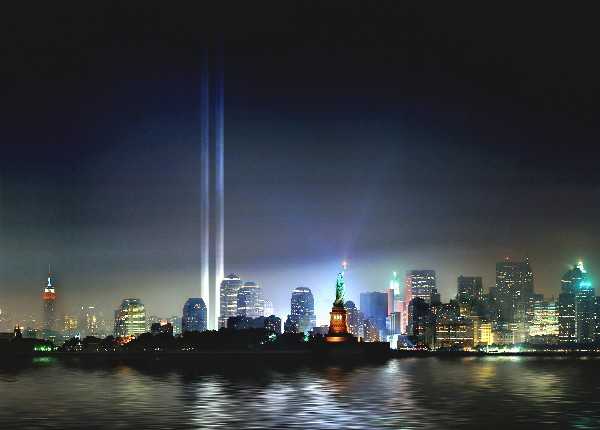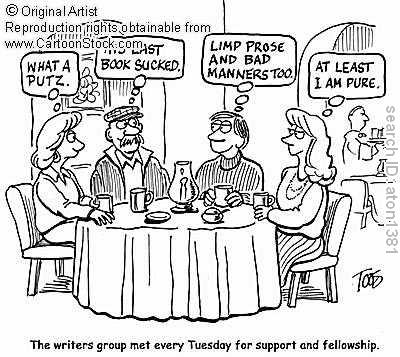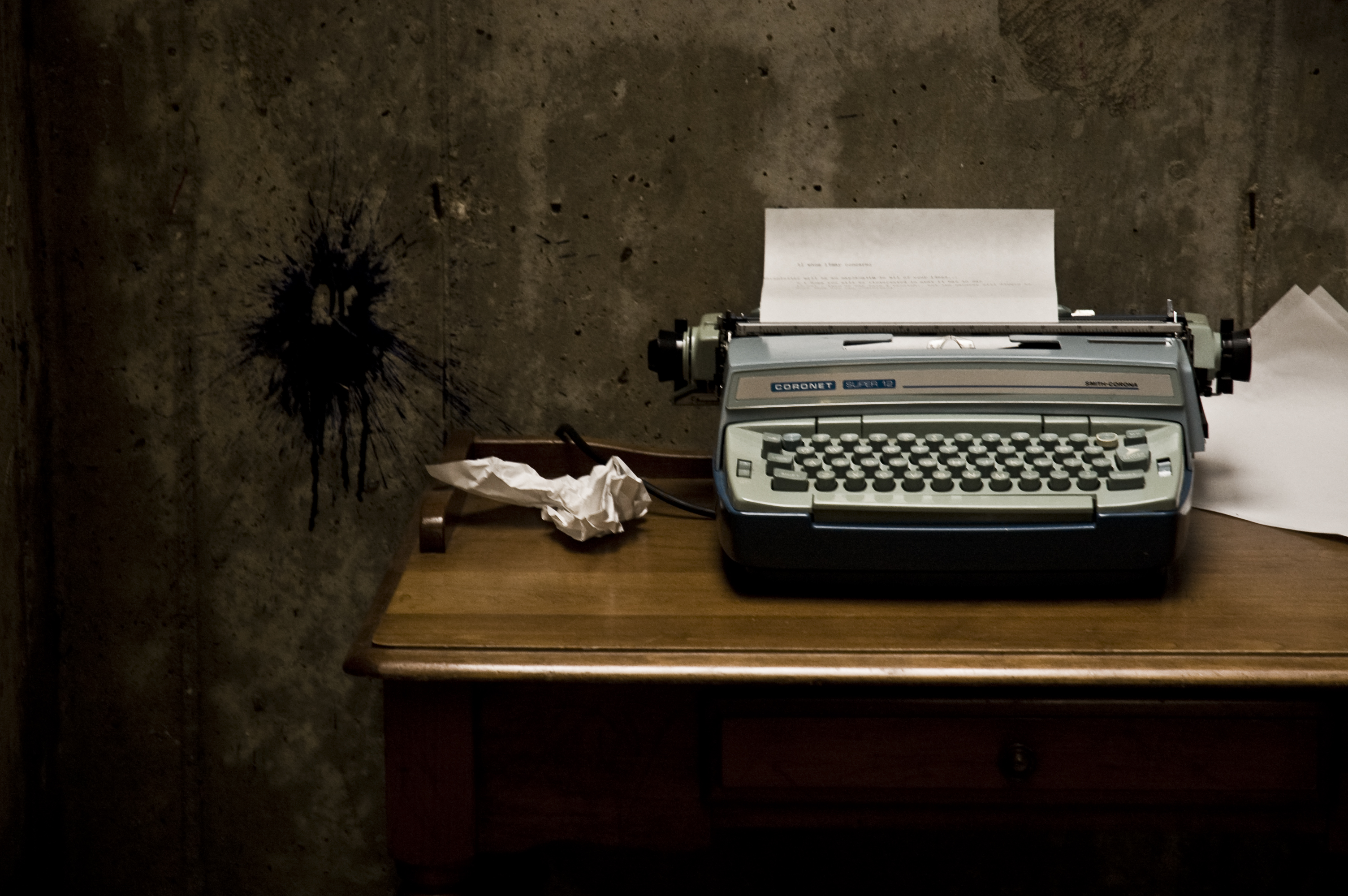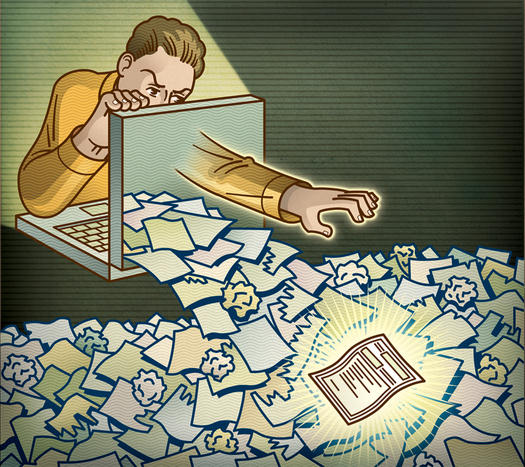I wrote this short story several years ago as an experiment with second-person viewpoint and a more lyrical prose style. I thought I would post it since it took place on Sept. 11 and the tenth anniversary is coming up. The concept was that while 9/11 was a great tragedy, individual tragedies continued to occur, just as they always do. This was published in Twenty 3 Magazine six years ago. It was the first story I ever submitted, accepted to the first place I submitted it. They spelled my name incorrectly–twice–in two different ways, and I didn’t get paid a cent. I didn’t even get a contributor copy. The magazine doesn’t even exist anymore. Still I was very proud of it. I hope you enjoy it.
Thousands Died This Morning
By
Jack Campbell, Jr.
Thousands died this morning.
You sit on the unforgiving asphalt, your hands stained crimson with the blood of your best friend. You watch through your Everclear haze as paramedics load his broken body onto a gurney. You’ve known him for all of your life, through skinned-knee afternoons, playground hijinks, and teenage angst-ridden romantic quests with the opposite sex. But you wouldn’t know him now. The concrete has grated his face unrecognizable, like cheese brick remnants that are about to go back into the fridge. His shirt is a loosely-connected network of cloth, shredded by the torn steel of the Ford Pinto that is now decimated road kill wadded beneath the trailer of a semi. The world moves in slow motion as your brain marinates in the liquid horror of reality. Not one moment of grief followed by merciful denial, but eternal guilt beating down like the sun on an August afternoon, blistering your soul. Frame by frame you gaze inward at the instant replay, powerless to stop the hideous carnage lurking around the curve, up the ramp of a now-blocked interstate. You see a Nike high-top lying on the ground, unloved and forgotten. You recognize it as Charlie’s. The shoe is more familiar than your friend. Somehow, the shoe makes it real.
It’s September 11th, 2001.
Thousands died just this morning. You woke up with the Everclear bottle still resting in your hands from the night before. Three hours of sleep had failed to clear your swimming head. A gulp of grain alcohol killed any bit of slumber-achieved sobriety as you stumbled to television’s glowing facade.
“Charlie,” you slurred to your sleeping friend. “Get a load of this…movie sucks…so fake. Charlie, where’s the goddamn remote?”
Charlie was lying practically on top of a passed-out girl that you recognize from your Biology class. Her make-up was a Picasso-esque smear. Images of her shirtless tango atop the kitchen table crept into your head, but soon fled from your alcohol-drenched brain, leaving you with nothing but a vague shadow of a memory, blackened by. You poured a little alcohol on Charlie’s face to wake him up. He sputtered and choked, fighting off the assault of the lukewarm liquor spreading quickly over his face.
“Damn…dude. That’s alcohol abuse. What a waste…” Charlie mumbles before retreating back to his huddled position, face buried in the girl’s back.
“Man, where’s the remote? Gotta be somethin’ better than this…”
Charlie waved off towards the wooden bar that you and he salvaged from a dumpster in back of an apartment complex. In the midst of spilt liquid and cigarette butts lying on a paper plate ashtray, you found the remote under the pile of beer cans. You shake the remote dry, and, with the press of a button, the grainy poorly produced production of burning buildings and crashing planes backed by the screams of innocents was replaced by the third showing of The Matrix you had seen this week.
Morpheus sat in front of Neo; offering the bliss of ignorance in one hand, and bitter bite of reality in the other. Which pill would you take?
Thousands died this morning. It made no difference to you. It wasn’t real. It wasn’t the truth. It was simply an illusion created by the cable company. It was simply a mirage, a distorted reflection in your drink. You finished off your bottle.
The Matrix has you.
Charlie had returned from the bathroom. You never even noticed that he got up. Your ears are deafened by your drunkenness. Your eyes are unfocused and bloodshot in protest to your drunken dehydration.
“Dude, we’re fresh out of TP,” he said, “Road trip?”
“A’ight.”
Thousands died this morning. But as you worked with Charlie in a dormitory restroom at the local college, you chuckled uncontrollably as you struggled to fight away intoxication long enough to pry the toilet paper dispenser off the heavily-vandalized stall wall.
“Hey! Stop!” the janitor cried as Charlie shoved by him in the narrow hallway, carrying a two-foot wide roll of toilet paper under his arm like a football, stopping momentarily to strike the Heisman pose before darting though the stairwell door.. You were hot on his heels, a drunken cackle erupting from your innards
In the car, success was on your tongues, and beer was on your lips in toast of your victory. You clinked your bottles together in honor of eternal friendship and big-ass rolls of toilet paper.
“Man, you are so fucking crazy,” you said. “I wish I had a camera.” You struck the Heisman pose in imitation of your friend, a true feat while driving in a cramped car.
“It was a moment of inspiration,” Charlie remarked. “I wish I’d straight-armed the janitor. Now that would have been a Kodak moment.” Charlie took a swig of his beer.
“Dude, you and your Bud Light. You’re a hundred pounds. Who are you kidding?”
“Ha, ha. One hundred pounds, my ass. Or maybe one hundred pounds YOUR ass,” Charlie said before finishing off his beer.
You laughed as Charlie meticulously peeled the label off the bottle for his wall-mounted collection, in spite of the bumpy ride. You gulped the remnants of your beer down, grimacing at the bitterness nipping at your throat, then grinning as the alcohol bloomed a warm welcome within your stomach. The comfort of that beer stayed with you right up till the moment you merged onto Highway 37, and then into the side of a Coca-Cola delivery semi.
Thousands died this morning. But you only killed one. As the death count on the east coast continues to rise, a count of one ravages you with its finality. One. Killed not in the name of jihad, but of Budweiser. One who did not die storming a cockpit to save his fellow man, but asleep in a drunken coma clutching a roll of single-ply like a child’s teddy-bear. One who was not killed by the hatred of a man he had never known, but by a friend with whom he’d spent most of his life.
The paramedics load Charlie into the ambulance en route to the hospital where the doctors and their machines will attempt to breathe machine life into his dead body. But you know that he is dead. You know it the way that the old men in town know it’s going to rain. You can feel it in your bones. You can smell Charlie’s death in the air, the copper smell of your friend’s blood. Though you are still drunk, you’ve never felt more sober in your entire life.
The paramedics turn their attention to you, but miraculously, you have been unharmed. There is not a scratch on your body. Inside, though, your mind is as mangled as the Ford Pinto that you had been driving since you were seventeen. The paramedics will take you to the hospital, tests will be run, and when they are done with you, the police will get their turn.
They will have their questions, and you will give them their answers. And then you will live. You will live as payment of debt for the life you were responsible for ending.
Thousands died today, but you will live, alone and guilty, for all of your life.




